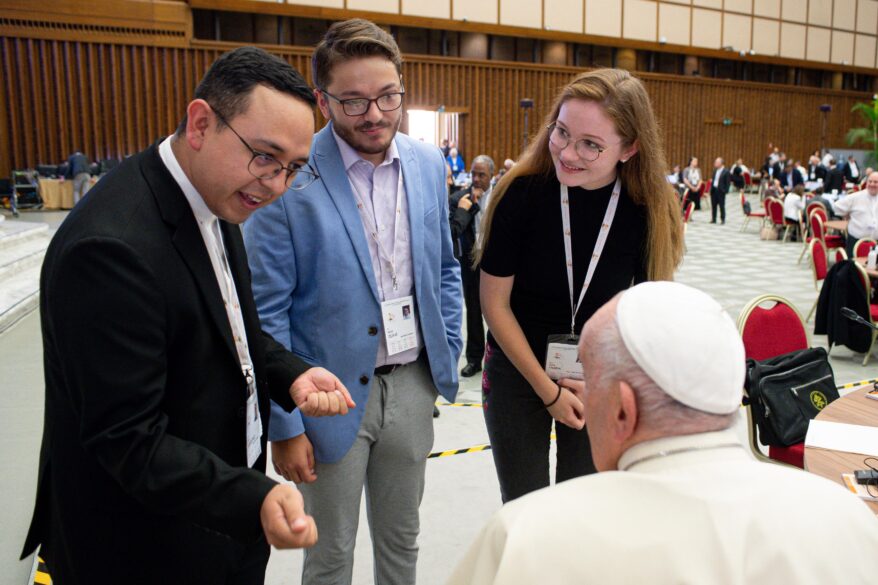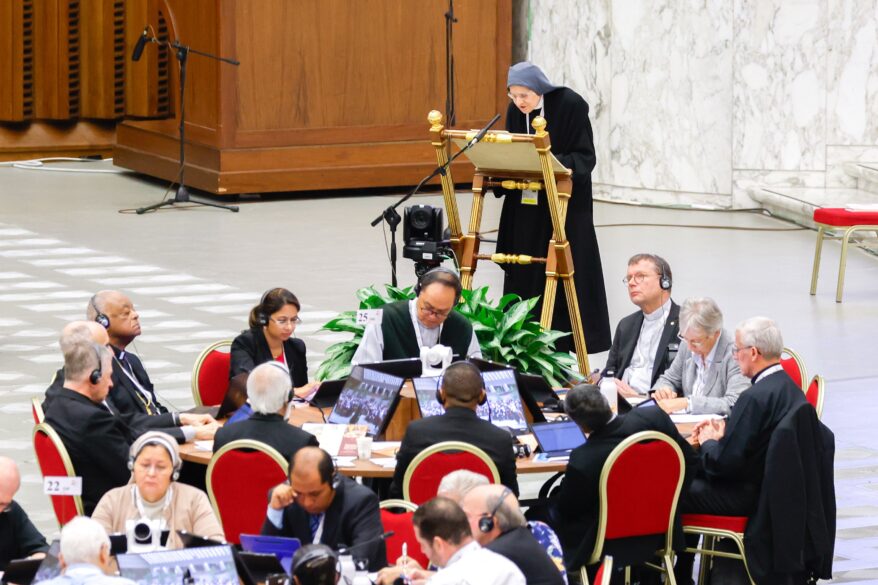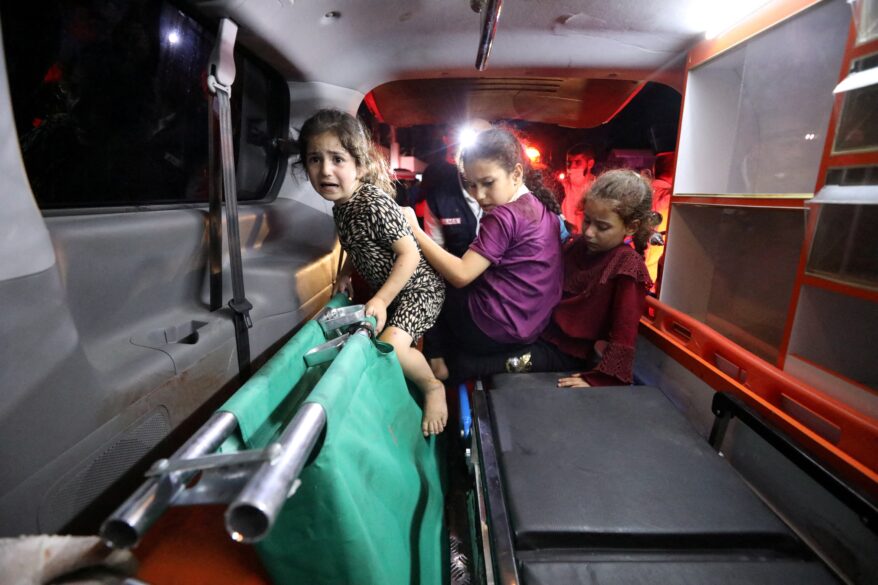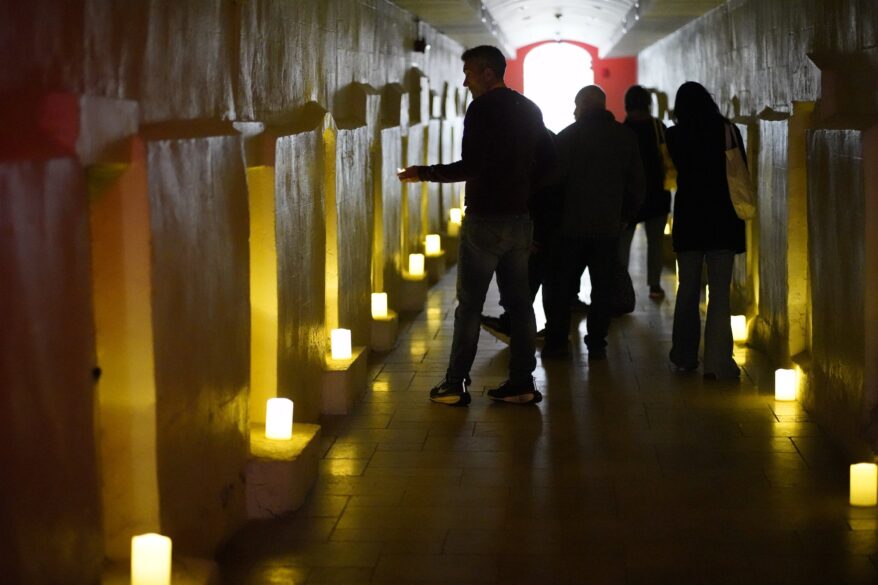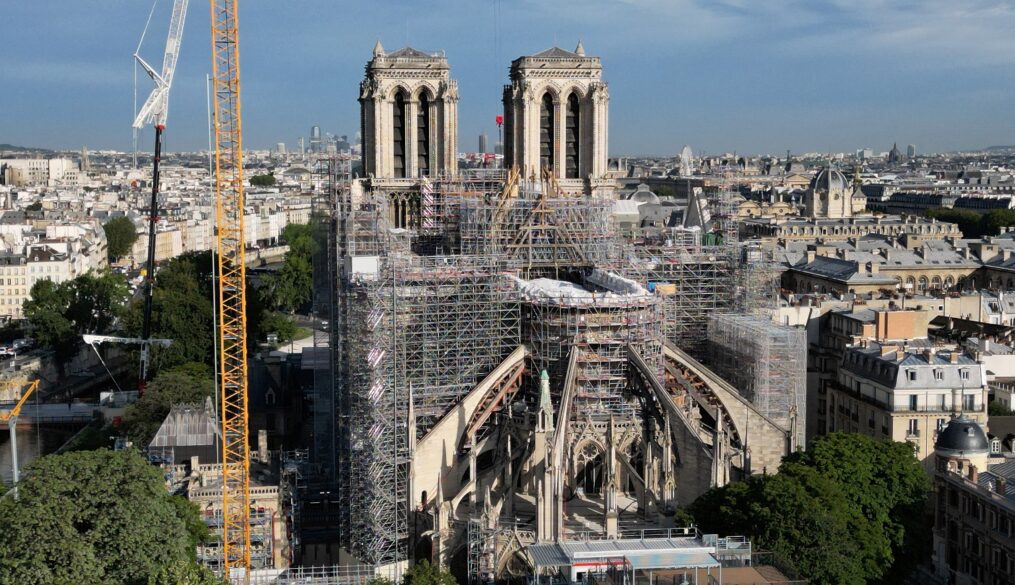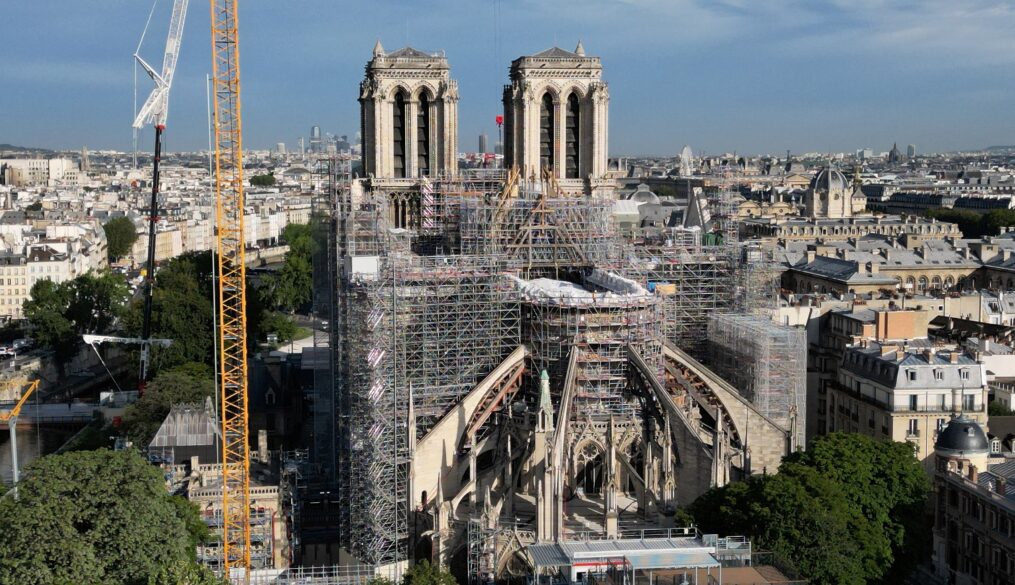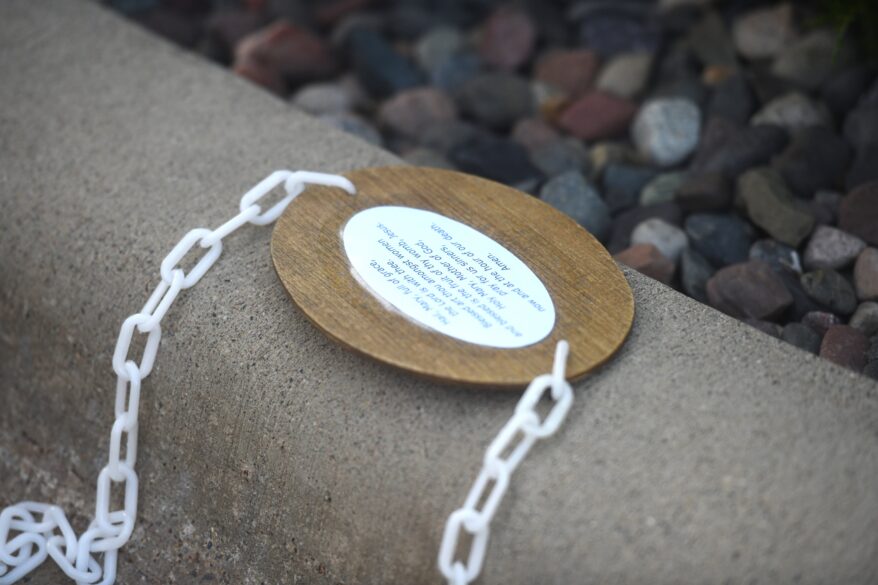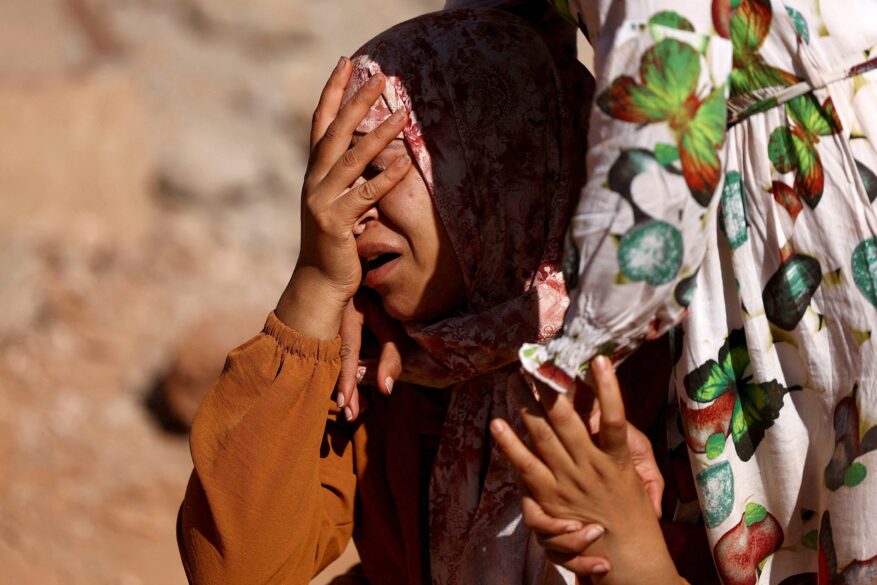By Peter Jesserer Smith (OSV News)
The Synod on Synodality’s first session at the Vatican has concluded, with its results wrapped up in a 41-page “half-time report” for the entire church to digest, reflect on and give feedback about ahead of the synod’s final session in Rome next October.
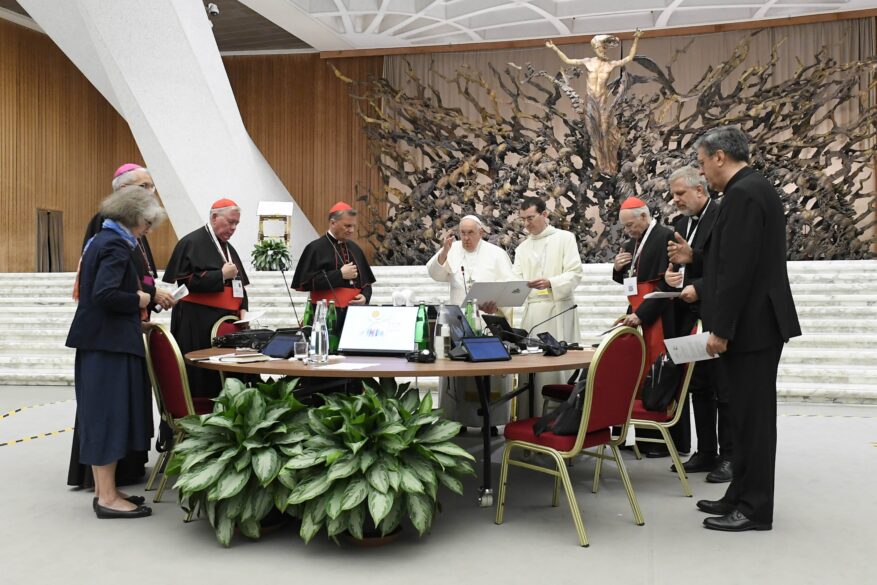
The report, a synthesis of the Oct. 4-29 meeting, is fundamentally an instrument for discernment, and it is designed to elicit further reflection and response from the whole church. The synod’s next session in Rome will have the task of making decisions about what concrete proposals to present before the pope. Ultimately, the pope will decide what to implement coming out of the Synod on Synodality.
The following are 10 takeaways about the synod’s synthesis report, with why it matters for Catholics in parishes and what happens next.
– 1. Synodality is about the church’s evangelizing mission, and baptism is why synodal governance matters.
The synod relates that “synodality is ordered to mission,” recognizing that the church’s members – with diverse backgrounds, languages and cultures — share the “common grace of baptism.” The synod’s themes of “communion, participation, mission” are the hallmarks for how the entire people of God in a synodal church – the laity, consecrated religious, deacons and priests with the bishops united with the pope – relate to each other and live together the call to holiness, proclaiming Jesus Christ’s good news to the world.
The synod explicitly says its work is rooted in the church’s dynamic and living tradition in the context of the Second Vatican Council’s teaching. But the synod also recognizes much remains to be done to clarify what “synodality” means, and to develop it into real processes and structures.
Part of that is figuring out how decisions are made in the church in a way that is faithful to its nature – including discerning how episcopal collegiality is exercised in a synodal church – because the church’s members have “differentiated co-responsibility for the common mission of evangelization.”
The synod’s “conversations in the Spirit” – an experience of listening and sharing in the light of faith, and seeking God’s will in an authentically evangelical atmosphere” – is recognized as a helpful tool in this regard.
– 2. The synod calls for formation in “authentic discipleship,” united by the Eucharist and nourished by the Word.
The synod stresses that all the church’s members are called to be “all disciples, all missionaries” who have the “responsibility of demonstrating and transmitting the love and tenderness of God to a wounded humanity.” In other words, living discipleship is at the heart of being Catholic.
The synod suggested deepening the notion that a “mature exercise of the ‘sensus fidei’ requires not only reception of baptism but a life lived in authentic discipleship that develops the grace of baptism.” The synod recognizes this can help discern where the Holy Spirit is at work, as opposed to where the baptized are just advocating dominant thinking, cultural conditions or “matters inconsistent with the Gospel.”
In this regard, the synod stresses that “the Eucharist shapes synodality,” and so the Mass should be celebrated “with an authentic sense of friendship in Christ” that reflects beauty and simplicity. The synod proposes “liturgy celebrated with authenticity is the first and fundamental school of discipleship.”
It also proposes enriching Catholic life beyond the Mass with alternative forms of liturgical prayer, as well as popular piety, particularly Marian devotion – both of which form the faithful and can also help others outside the church encounter the Lord.
– 3. Synodality is not about having more meetings, but it is about discerning together how to go on mission at each level of the church.
The synod also emphasizes that synodality in the church calls Catholics to discern intentionally as a community how Jesus is calling them to live out their mission. It’s not about self-referential meetings, but rather a style of carrying out “evangelical proclamation, service to those experiencing poverty, care for our common home and theological research.”
The document emphasizes the need for formation, and also making spaces to receive the church’s teaching, and discern how to act on it. The church’s social doctrine needs to be understood by the faithful so they can build up the kingdom of God.
Synodality is about gathering the disciple community together to discern what is their mission and how Jesus is sending them on mission. Any effective structural change to make the church’s members “co-responsible” presupposes “profound spiritual conversion,” both personal and communal, in order to carry out Jesus’ mission.
At the same time, the synod calls for further consideration on how the church’s theology and modern developments in science can dialogue, and effective ways to do that for the church’s discernment, particularly on complicated or controversial questions. Above all, the synod says, “Jesus’ actions, assimilated in prayer and conversion of heart, show us the way forward.”
– 4. A synodal church must reflect on what formation its priests, deacons and laity need to carry out their mission together.
The synod recognizes bishops and priests face disproportionate burdens of responsibility for the church’s mission. It also identifies clericalism as opposed to Jesus’ model of ministerial service, leading to “authoritarian attitudes,” and vocations stifled by privilege and power that refuse accountability.
The synod suggests extensive discussion and consideration of revising priestly formation to address this. Instead of forming priests in an “artificial environment separate from the ordinary lives of the faith,” they should develop through “close contact with the People of God and through concrete service learning experiences.”
The synod recognized there is universal agreement that priestly celibacy is “richly prophetic and a profound witness to Christ.” But it also suggested further consideration of whether it is appropriate for the Latin Church alone to continue to insist on it – the Eastern Churches (Catholic and Orthodox) have a tradition of celibate and married clergy – when there are ecclesial and cultural contexts that make it more difficult for the church’s mission.
The synod is calling for a deepening reflection on the vocation of the deacon, “above all in the exercise of charity.”
The synod indicated the importance of expanding women’s access to theological formation, their inclusion in decision-making and responsibility in pastoral care and ministry, and even the exploration of new ministries where women could decisively contribute. It noted the debate over women and the diaconal ministry, and expressed openness to continuing research and examining what has been done so far.
It also touched on lay ministry and called for more creativity in how these roles are thought of and lived at the service of mission: for example, developing the ministry of lector beyond its liturgical role, such as preaching in appropriate contexts. It also envisioned possibly a lay ministry taken up by married couples to support married and family life.
– 5. Disciples listen to people and accompany them like Christ in whatever their personal, familial or social situations.
The synod says “listening is the word that best expresses our experience. This is listening given and received.” Listening really is where the church discerns the mission Jesus is calling his disciples and their particular communities.
It also emphasized the church needs to give its closeness, listening and accompaniment to those who feel alone in remaining faithful to the church’s teaching on marriage and sexual ethics, as well as to those on the margins because of “their marriage status, identity or sexuality.”
The synod suggests further consideration of the point that listening “does not mean compromising proclamation of the Gospel or endorsing any opinion or position proposed” – but rather being like Jesus, who listens and loves unconditionally to share his good news.
It also emphasized the church needs to extend its closeness to the lonely and abandoned, the elderly and sick.
The synod document called for further discernment about “Eucharistic hospitality” – the situation of people of different churches receiving Communion – and “inter-church marriages.”
– 6. The Catholic Church needs strong Eastern Churches collaborating with the Latin Church.
The synod indicates it is vital for Catholics to realize that the Catholic Church is a communion of coequal sister churches – Latin Church (the biggest and headed by the pope) and 23 different Eastern Catholic Churches, all enjoying communion through their unity with the pope. The synod calls for all Catholic communities and clergy to learn about each other and actively work together modeling “unity in diversity.”
It stresses that the Latin Church’s members (for the most part known as Roman Catholics) need to help Eastern Catholics in situations where they do not have access to their own churches to live out their traditions. The synod said “Latinization” (making Eastern churches conform to the traditions and practices of Latin churches) is “outdated.”
The synod indicated that Eastern Churches must work out their relationship to role of the pope, whose role is rooted in the Latin Church, specifically in whether his assent is needed in the selection of bishops, and the fact that Catholics of these Eastern Churches are no longer confined to traditional patriarchal territory but are now all over the world.
It proposes a permanent council of patriarchs and major archbishops to the Holy Father, and that Eastern Catholics should be adequately represented throughout the Roman Curia.
– 7. The synod suggests a new path for ecumenism, particularly thanks to the martyrs.
There has been a lot of discouragement about dialogue between Catholic and other Christian confessions achieving its goal of actual unity – but the synod appears to have made significant suggestions for moving ahead.
Among the proposals was that an “ecumenical martyrology” be developed, which would allow the church to commemorate Christian martyrs who share a common baptism but not the same confessional boundaries. The point has been emphasized most recently by the early 21st-century martyrdoms, such as in the Middle East, where Islamist militants killed Orthodox and Catholics for being Christians – among them the 21 Coptic Orthodox martyrs of Libya.
The synod emphasized that local churches can engage ecumenically with other churches in carrying out the work of the Gospel, and the importance of continuing to involve Christians of other churches and traditions in synodal processes “at all levels.”
Among the proposals is to find a common date for the celebration of Easter with an eye to the year 2025, the 1,700th anniversary of the Council of Nicaea.
– 8. The synod emphasizes the church needs to evangelize digital spaces intentionally as a dimension of its mission.
The synod views the digital realm not as a separate field but a “crucial dimension of the church’s witness in contemporary culture.” This means understanding digital culture in order to evangelize it and engaging the church’s younger generation – clergy, religious and lay – in carrying out the mission here.
The synod proposes discernment on how the church can be involved in helping make the online world “safe” for families — noting the dangers of intimidation, disinformation, sex exploitation and addiction — and how the church can make the digital realm “spiritually life-giving.”
This challenges parishes and dioceses about how to engage here, especially forming and accompanying “digital missionaries” and networking them together. It also suggests creating collaborative opportunities with influencers, particularly in areas of “human dignity, justice and care for our common home.”
– 9. Sex abuse is undermining the church’s missionary life, and the synod recognizes that a truly synodal church needs to get this right.
The synod stated, “Sexual abuse and the abuse of power and authority continue to cry out for justice, healing and reconciliation.” It acknowledges this synodal process has seen the Holy Spirit pour out fruits of “hope, healing, reconciliation and restoration of trust.”
Furthermore, listening to and accompanying those who have suffered abuse in the church have helped people feel no longer invisible. At the same time, the synod makes clear “the long journey towards reconciliation and justice” remains and requires “addressing the structural conditions that abetted such abuse” and “concrete gestures of penitence.”
A synodal church requires a “culture of transparency,” respect for existing procedures to safeguard minors and people when they are vulnerable, and “further structures dedicated to the prevention of abuse.” It noted bishops are in a difficult situation of reconciling their “role of father with that of judge,” and suggested exploring the possibility of giving the judicial task to another body specified in canon law.
– 10. The bishops must now figure out how to take these ideas to the pews for further discernment and bring that back to the synod.
The synod synthesis’ 41-pages are broken up into three sections with vital topics that truly interest and affect the entire People of God.
At this point, the synod leaves it to worldwide episcopal conferences to discern the next steps to take. During the synod’s first session, Archbishop Timothy P. Broglio of the U.S. Archdiocese for the Military Services, who is president of the U.S. Conference of Catholic Bishops, acknowledged that the bishops would have to foster greater participation, including encouraging pastors to buy in. U.S. participation rate in the synod’s preparatory process was 1% of U.S. Catholics.
The prospect of getting this feedback within a year may seem daunting to bishops. If the document is really going to be thoroughly discerned and feedback provided within 11 months, the lay faithful will likely have to raise their voices and volunteer to work with their pastors and bishops to get it done in time for the second October session.
Peter Jesserer Smith is national news and features editor for OSV News.
NOTES: The synod’s synthesis report can be found here: https://www.synod.va/en/news/a-synodal-church-in-mission.html.

